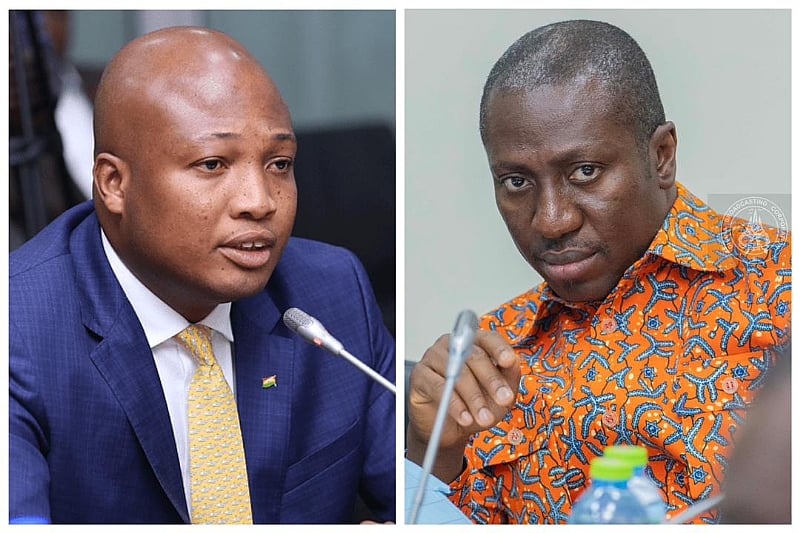The political landscape of Ghana witnessed a brief but intense episode of accusation, clarification, and apology involving two prominent figures: Alexander Afenyo-Markin, the Minority Leader and Ranking Member of Parliament’s Appointments Committee, and Samuel Okudzeto Ablakwa, the Foreign Affairs Minister-designate. The controversy stemmed from Afenyo-Markin’s allegation that Ablakwa had illicitly gained access to his vetting on Thursday, January 30th, a claim that sparked immediate backlash and calls for retraction.
The initial accusation, made during a press conference on Friday, January 31st, alleged that Ablakwa’s name was absent from the official list of nominees scheduled for vetting on the previous day. Afenyo-Markin further insinuated that Ablakwa’s purportedly unauthorized presence contributed to the disruption and disarray that ensued, marked by damaged furniture and interrupted proceedings. This claim, carrying the weight of Afenyo-Markin’s political position, cast a shadow over Ablakwa’s integrity and the legitimacy of his participation in the vetting process.
However, the narrative took a sharp turn during Ablakwa’s own vetting later that Friday. He vehemently refuted Afenyo-Markin’s accusations, branding them as false and designed to tarnish his reputation. In a decisive move, Ablakwa produced a letter from Gifty Jiagge-Gobah, the Clerk of the Appointments Committee, which served as concrete evidence of his scheduled appearance. This documentary proof effectively dismantled Afenyo-Markin’s claim of unauthorized entry, highlighting the gravity of the false accusation. Ablakwa, visibly concerned about the potential damage to his public image, demanded a full and unequivocal apology from Afenyo-Markin, emphasizing the impact on his family, constituents, and invited guests.
The demand for an apology placed Afenyo-Markin in a delicate position, requiring him to address the damage caused by his unsubstantiated claims. When his turn came to question Ablakwa during the vetting process, Afenyo-Markin chose to acknowledge his error and offer a public apology. Recognizing the personal distress his words had caused, he specifically apologized to Ablakwa’s wife for the implications of his statements. This gesture demonstrated a degree of empathy and understanding of the potential emotional impact his accusations could have had on Ablakwa’s family.
Afenyo-Markin reiterated his apology to Ablakwa himself, expressing his respect for the minister-designate and emphasizing that he harbored no intention of disparaging him. The public apology, delivered during the vetting session, served as a significant step towards rectifying the damage caused by the initial accusation. It acknowledged the importance of accountability and demonstrated a willingness to correct a public misstep.
This incident underscores the significance of verifying information before making public statements, particularly those with potentially damaging consequences. In the realm of politics, where reputations are constantly under scrutiny, the spread of misinformation can have far-reaching effects. The swift response from Ablakwa, coupled with his presentation of concrete evidence, served as a powerful counter-narrative, forcing a public retraction and apology. The incident ultimately serves as a reminder of the power of accountability and the importance of upholding ethical standards in political discourse. While the initial accusation created a temporary cloud of suspicion, the subsequent apology and clarification helped to restore a semblance of balance, highlighting the potential for corrective action within the political arena.


